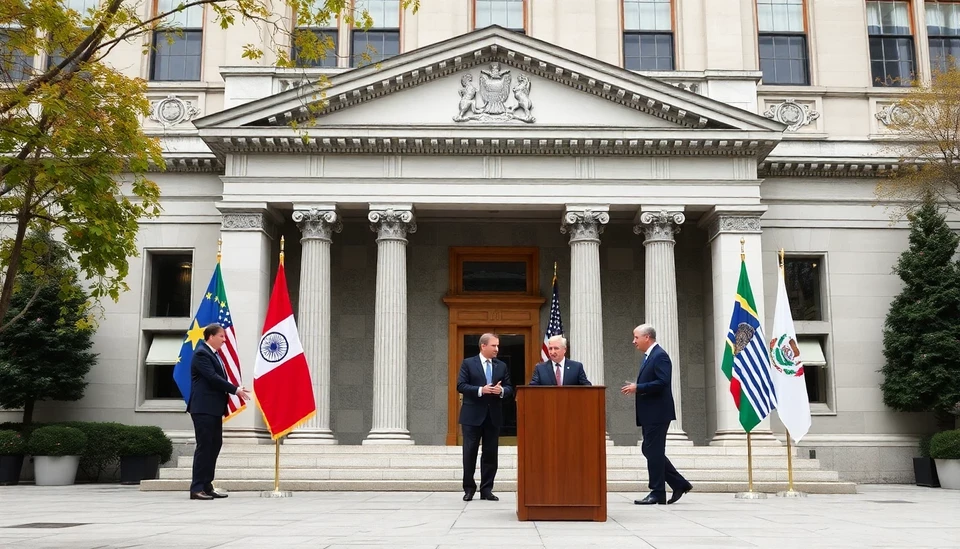
In a striking turn of events, the latest discussions amongst G7 leaders hint at a significant transformation in global economic strategy, leaving central banks grappling with the fallout. While these political powerhouses gather to redefine economic priorities, they seem to be casting aside the traditional playbook that once relied heavily on monetary policy to drive growth and stability. This shift impacts central banks' roles and highlights a growing divergence in their strategies to combat inflation and stimulate economies amidst evolving global challenges.
The G7, which includes Canada, France, Germany, Italy, Japan, the United Kingdom, and the United States, has increasingly recognized the limitations of central banks in addressing the complexities of today’s economic landscape. This sentiment was echoed in recent high-level meetings where leaders emphasized the need for fiscal measures and structural reforms over reliance on interest rate adjustments and quantitative easing, practices that dominated responses in previous economic crises.
Central banks have been left in a precarious position as inflation continues to grip many advanced economies, driven by factors such as lingering supply chain disruptions, soaring energy prices, and the geopolitical tensions that have been further exacerbated by conflicts in various regions. With inflation data remaining stubbornly high, central banks, especially the Federal Reserve and the European Central Bank, face an uphill battle in straddling the line between curbing inflation and fostering economic growth.
The recent G7 discussions also illuminated new economic paradigms that leaders believe can drive resilience against future shocks. These include embracing green technologies, promoting digital transformation, and fostering global cooperation on trade. The call for these initiatives poses a challenge to central banks, which may need to recalibrate their strategies in tandem with the new fiscal policies being proposed by G7 leaders.
As central banks aim to navigate this evolving landscape, their strategies may reflect a more collaborative approach in conjunction with government policies. This marks a stark contrast from the past, where monetary authorities operated independently of fiscal actions. Analysts suggest that this integration could potentially lead to a more holistic approach to managing economic vulnerabilities.
The implications of these shifts are profound. For one, central banks may have to adjust their communication strategies to align with the new expectations set forth by G7 leaders. Furthermore, this evolving role could create uncertainty in financial markets, as investors recalibrate their expectations concerning interest rates and economic growth trajectories.
Market observers are keenly watching how this new collaboration will materialize and whether it can effectively stabilize economies without triggering further inflationary pressures. If successful, this could herald a new era of economic governance that places greater emphasis on comprehensive policy frameworks while reducing the singular dependence on traditional monetary policies.
As the aftermath of the G7 summit unfolds, the strategies adopted by both the leaders and central banks will be crucial in shaping the future economic landscape. Stakeholders across the globe remain alert, eager to see if the proposed changes will usher in sustainable practices or if they are merely short-term reactions to complex economic challenges.
In conclusion, the shift in focus among G7 leaders signals a pivotal moment for central banks as they adapt to new economic realities. Their response will not only influence inflation rates and growth prospects but also define the trajectory of global economic stability in the years to come.
#G7Summit #CentralBanks #GlobalEconomy #Inflation #MonetaryPolicy #FiscalReforms #EconomicStrategy #MarketStability #FinancialNews
Author: Laura Mitchell




